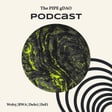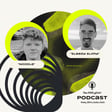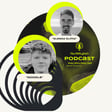
How to Commercialize University Research and Turn Academic Innovation into Real-World Impact : ep 7
In this episode, we dive into the journey of commercializing university research, exploring the unique challenges and opportunities within Technology Transfer Offices (TTOs). We discuss why so many research projects struggle to reach the market, how TTOs can better support innovation, and what it takes to bridge the gap between academia and industry. Discover practical insights on turning ground-breaking ideas into impactful solutions, including how the PIPE platform helps connect researchers, investors, and industry experts. Whether you're an academic, investor, or start-up enthusiast, this episode offers valuable strategies for transforming research into real-world success.
This podcast is for informational and educational purposes only and does not constitute financial, legal, or investment advice. Views expressed are those of the hosts and guests and may not reflect those of the PIPE gDAO or its affiliates.
Investing in blockchain, DAOs, and tokenized university research involves significant risk. Do your own research and consult qualified professionals before making investment decisions.
PIPE gDAO makes no guarantees about the accuracy or completeness of information presented and is not liable for any losses arising from its use. This is not an offer or solicitation to buy or sell any financial product.
Hosts and guests may have financial interests in the projects discussed.


